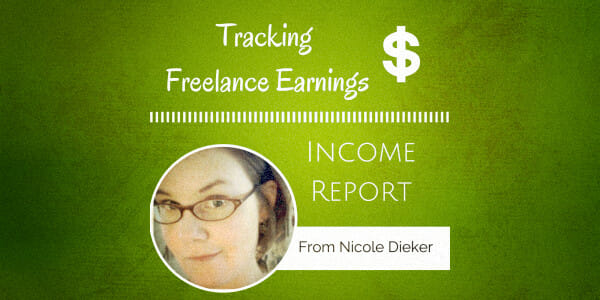Freelancers with multiple clients know that they can continue earning money even after a client relationship ends.
When most of your income comes from one or two clients, however, you need to be prepared for what might happen if you no longer have those income sources.
First, my numbers for July:
Completed pieces: 55
Work billed: $6,424.13
Income received: $8,530.55
I wrote 36,300 words this July, which is not only fewer words than usual but also significantly fewer words than the 53,600 I wrote in July 2015. I also earned more money: $6,424 compared to July 2015’s $5,034. My career — and my earnings — continue to move forward.
Booked through the end of the year
On the subject of moving forward: right now, I have freelance work fully booked through the end of 2016. There will still be opportunities for me to take on the occasional small project if one comes up, but for all intents and purposes, my calendar is full.
How did I get to this point? By building long-term relationships with clients who, in turn, offer me recurring work or long-term projects.
When I started out as a freelancer, I booked my writing work one day at a time.
As I continued pitching and building client relationships, I began to book work two weeks ahead. It took until my third year of freelancing before I was able to book work one month ahead — that is, to have a full month of work booked before that month began.
In 2016, I started being able to book work two months ahead, and now I’m looking at five months of fully-booked work.
The drawback, of course, is that this limits my ability to take on new projects or develop new client relationships. I have enough room in my schedule for maybe one additional piece per month, if the piece is something I really want to work on.
However, if someone asked me to take on a dream project — let’s say an editor asked me if I could fly to London and spend a week with the cast of Harry Potter and the Cursed Child — I’d have to say no. Or “could we do that in 2017?”
Thinking of freelancing like a job
Last month, I wrote that the majority of my income came from two big clients. I’m being very careful to ensure that I keep writing for a handful of additional clients, first to make sure my byline is being seen in multiple publications (and by multiple groups of readers), and also to ensure that I’ll have at least some income if something happens to one of my two big clients.
Freelancers often say that one of the benefits of freelancing is being able to diversify your income sources. If you lose a client — and I have lost more than one client, over the course of my freelancing career — you still have other clients and other work.
This equation changes slightly when the bulk of your income comes from one or two sources. I’ve always thought of freelancing as a job, but now I’m thinking of it in the so-called “traditional job” sense:
I need to be prepared for the possibility that I might “lose my job,” or lose one of my primary clients, and I need to be able to spend at least two months living off my savings while I look for a new large client (or, potentially, a group of smaller clients).
In the past, ending a client relationship meant, at most, losing 25 percent of my freelancing income. Now that the majority of my income comes from two clients, I’m beginning to think about what might happen if I lose 50 percent or more of my income.
I’m very close to having a three-month emergency fund, but I want to continue adding to my savings account as my own form of “unemployment insurance.” That, and continue to stay active in the freelancing community and build as many relationships as possible — even though I won’t be able to take on a new big writing project until 2017.
How do you diversify your income sources? Do you have one client that provides the majority of your income? Do you have a plan for what you’ll do if that client relationship ends?







